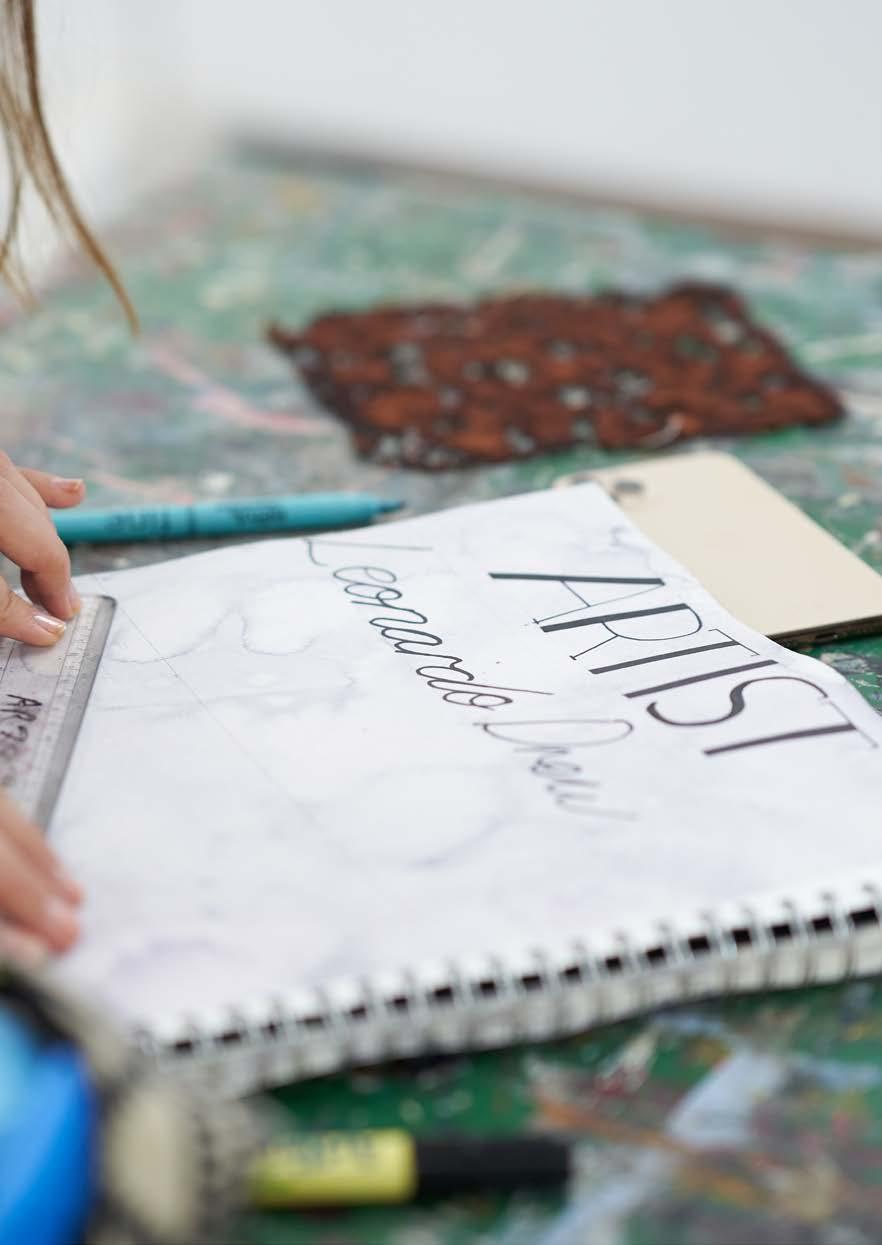
3 minute read
Drama (A-Level
ENTRY CRITERIA Students will need to have undertaken GCSE Art and Design, or an equivalent qualification, before embarking on the two-year A-Level Fine Art course.
ASSESSMENT CRITERIA The A-Level consists of Units 1 and 2. It will be a discrete qualification and is a full 2-year course. The A-Level course will be examined at the end of Year 13. There are no revisable or written examinations. All practical work produced during the two year course will be assessed.
Advertisement
A-Level 103
A
Le vels
Drama
Drama involves the study of theatre through practical exploration and analysis. Students explore plays and playwrights and use this knowledge in the creation of their own performances, either as a performer or as a designer. Practical work is at the heart of the study of Drama and Theatre.
COURSE AIMS • To broaden students’ knowledge of plays, playwrights and theatre practitioners • To build practical, creative and communication skills • To cultivate students’ ability to create drama and theatre • To develop performance skills or design skills (lighting/ sound/ costume/ set) or a combination of the two • To refine analytical skills and develop essay writing skills about plays and performances
ADVICE This course will suit students who: • Can work effectively as part of a team • Enjoy exploring issues and ideas and have a creative desire to make theatre • Are enthusiastic about practical drama and working in groups • Are keen to learn about plays and develop their skills as a performer or a designer • Have an interest in watching and analysing theatre productions develop ENTRY CRITERIA
105 A-Level
This course is ideally suited to students who have studied GCSE Drama or who have drama experience. However, students who do not meet these criteria will be considered on their individual suitability for the course. ASSESSMENT CRITERIA

The A-Level consists of three components, taken over a two year course:
Component 1: Written examination Externally assessed 50% of the AS-Level | 25% of the A-Level
Candidates study two plays and in the exam, they answer two questions: one question from Section A and one question from Section B in an open book written examination.
Component 2: Practical Drama coursework Internally assessed and externally moderated 50% of the AS-Level | 25% of the A-Level
There are two compulsory parts to this coursework: 1. Devising: Candidates work in a group of between 2 and 5 to devise and perform a 10–15 minute devised piece. In addition to the performance, they submit a 3 minute self-evaluation 2. Scripted performance: Candidates work in a group to prepare and perform a 10–25 minute scripted performance from a published play of their own choice Component 3: Theatre-making & Performing coursework
107 A-Level
Internally assessed and externally moderated 25% of the A-Level
There are two compulsory parts to this coursework: 1. Devising Candidates work in a group to devise and perform a 15–20-minute group devised performance inspired by one of the theatre practitioners, traditions or styles prescribed in the syllabus. The candidates can be assessed as a performer or designer. Candidates also submit an 800-word analysis and evaluation. 2. Individual performance Candidates individually create a 6–8-minute individual performance which is a programme of thematically linked materials of their own choosing.
Component 4: Theatre in context (Independent research essay coursework) Externally assessed 25% of the A-Level
Candidates explore performance texts, a theatre genre, a theatre practitioner’s work or a performance style in a 2500–3000-word research essay.
A-LEVEL DRAMA
CAREER OPPORTUNITIES
The major benefit of Drama is the transferable skills that can be applied to any degree and all future careers. Presenting ideas with confidence, teamwork and creativity are essential qualities for the future. This A-Level can lead to further study in Drama, Theatre Studies and the Performing Arts and may lead on to a career in the performing arts industries. However, studying Drama at A-Level can also be a useful experience for a wide range of courses. In previous years this course has been popular with students who are going on to study Law and other occupations where presentation skills play a central role. Drama and Theatre A-Level complements a range of subjects such as English Literature, Design Technology, Media Studies and Art, but can be combined with any other subject combination.





